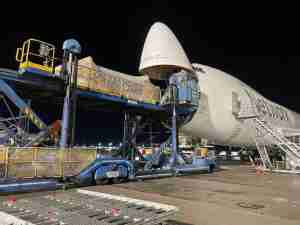EasyJet Plc fell as much as 8.2% after slowing the build-up of flights following the latest U.K. curbs on international travel.
Britain’s biggest discount airline, which had been been planning to fly at 40% of capacity in its current fourth quarter, now expects to operate at slightly less than that, it said Tuesday in a statement.
EasyJet also dropped a forecast for a smaller loss this period than in the third quarter through June, when it had a shortfall of 324 million pounds ($426 million) as the pandemic grounded fleets. It will provide no financial guidance for the fiscal year starting next month.
“Demand is now likely to be further impacted and therefore lower than previously anticipated,” Chief Executive Officer Johan Lundgren said in the release. “It is difficult to overstate the impact that the pandemic and associated government policies has had on the whole industry.”
Greek Islands
U.K. Transport Secretary Grant Shapps on Monday announced 14 days of self-isolation for travelers arriving from islands including Crete and Santorini. While the introduction of a regional approach, which avoided limits on the Greek mainland, was welcomed as less severe than blanket quarantines, the move adds to confusion and complexity around where people can fly unhindered.
Virus cases are also rising in European countries including France and Germany.
EasyJet shares traded 4.9% lower at 597.6 pence as of 8:31 a.m. in London, taking the decline this year to 58% and valuing the company at 2.73 billion pounds.
Lundgren repeated calls for sector-specific support for aviation, including the removal of the air passenger duty tax for 12 months, alleviation of air traffic control charges and the extension of a waiver of use-them-or-lose-them airport slot rules.








